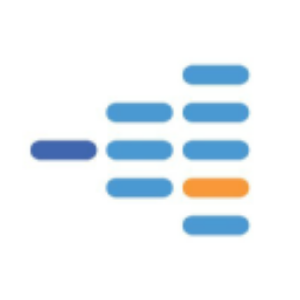Lineage Initiates Clinical Study of OPC1 for Spinal Cord Injury
Safety Study of Stem Cell-derived Transplant Includes Subacute and Chronic SCI Patients
“Differentiated cell transplantation is a promising therapeutic approach, so it is a privilege that Lineage has received written clearance from FDA to launch the DOSED study as part of our continued development of OPC1,” stated Brian M. Culley, Lineage’s CEO. “The DOSED study, the third clinical study of OPC1, will evaluate MI PSD, a novel delivery system designed through an external collaboration, to deliver our proprietary cells over several minutes without the need for stopping patient ventilation. The delivery system also is compatible with a forthcoming immediate-use formulation of OPC1 which we developed for this program, and which eliminates the dose preparation steps conducted in prior studies. This study will be the first time OPC1 is administered to patients with a chronic spinal cord injury, which will be a significant milestone, as it represents an additional and larger potential patient population for this experimental therapy. In addition to the safety and performance of the new device, we also will be collecting functional assessments on all patients, which gives us the opportunity to investigate any signals of efficacy that may arise. The first study site will be UC San Diego Health. We look forward to building on the promising work and clinical results observed in prior studies of OPC1.”
OPC1 has an extensive long-term safety profile and has been tested in two clinical trials to date: a five-patient Phase 1 safety trial in acute thoracic SCI, where all active subjects have been followed for at least 13 years; and a 25-patient Phase 1/2a multicenter dose-escalation trial in subacute cervical SCI, where all active subjects have been evaluated for at least 7 years. Long-term safety monitoring is ongoing for both studies, with no unexpected serious adverse events attributable to the OPC1 transplant being reported to date. Results from both studies have been published in the Journal of Neurosurgery: Spine. The Phase 1/2a publication of OPC1 in subacute cervical SCI is available here and the publication from the Phase 1 clinical study of OPC1 in acute thoracic SCI is available here. The OPC1 program was one of the first cell therapy clinical trials to be supported by the California Institute for Regenerative Medicine (CIRM) under Proposition 71.
Lineage founded the Annual Spinal Cord Injury Investor Symposium in 2023 and has co-sponsored the event in partnership with The Christopher & Dana Reeve Foundation in each year since then. The goals of this collaborative effort include increasing disease awareness, improving the probability of success in product development, and supporting clinical trial participation. The Reeve Foundation is dedicated to curing spinal cord injury by funding innovative research and improving the quality of life for individuals and families impacted by paralysis. Presenting companies have included AbbVie, Mitsubishi Tanabe, Neuralink, NervGen Pharma and ONWARD.
About OPC1
OPC1 is an oligodendrocyte progenitor cell (OPC) transplant therapy designed to provide clinically meaningful recovery in, and improvements to, motor function in individuals with spinal cord injuries (SCIs). OPCs are naturally occurring precursors to the cells that provide electrical insulation for nerve axons in the form of a myelin sheath. SCI most often occurs when the spinal cord is subjected to a severe crush or contusion injury and typically results in severe functional impairment, including limb paralysis, aberrant pain signaling, and loss of bladder control and other body functions. In the
A selection of patient focused media related to the OPC1 program is available on the Media page of the Lineage website.
- Lineage’s OPC1 program featured on CNN: “He was paralyzed his last day of high school. How an experimental trial is showing ‘unexpected improvement”
- OPC1 patient spotlight – Chris Block’s story
- OPC1 patient spotlight – Lucas Lindner’s story
About the DOSED Study
The Delivery of Oligodendrocyte Progenitor Cells for Spinal Cord Injury: Evaluation of a Novel Device (DOSED) clinical study is an open label, multi-center, device safety study, in 3-5 subacute and 3-5 stable chronic subjects with complete (
About Lineage Cell Therapeutics, Inc.
Lineage Cell Therapeutics is a clinical-stage biotechnology company developing novel, “off-the-shelf,” cell therapies to address unmet medical needs. Lineage’s programs are based on its proprietary cell-based technology platform and associated development and manufacturing capabilities. From this platform, Lineage designs, develops, manufactures, and tests specialized human cells with anatomical and physiological functions similar or identical to cells found naturally in the human body. These cells are created by applying directed differentiation protocols to established, well-characterized, and self-renewing pluripotent cell lines. These protocols generate cells with characteristics associated with specific and desired developmental lineages. Cells derived from such lineages are transplanted into patients in an effort to replace or support cells that are absent or dysfunctional due to degenerative disease, aging, or traumatic injury, and to restore or augment the patient’s functional activity. Lineage’s neuroscience focused pipeline currently includes: (i) OpRegen®, a retinal pigment epithelial cell therapy in Phase 2a development under a worldwide collaboration with Roche and Genentech, a member of the Roche Group, for the treatment of geographic atrophy secondary to age-related macular degeneration; (ii) OPC1, an oligodendrocyte progenitor cell therapy in Phase 1/2a development for the treatment of spinal cord injuries; (iii) ReSonance™ (ANP1), an auditory neuronal progenitor cell therapy for the potential treatment of auditory neuropathy; (iv) PNC1, a photoreceptor neural cell therapy for the potential treatment of vision loss due to photoreceptor dysfunction or damage; and (v) RND1, a novel hypoimmune induced pluripotent stem cell line being developed under a gene editing partnership. For more information, please visit www.lineagecell.com or follow the company on X/Twitter @LineageCell.
Forward Looking Statements
Lineage cautions you that all statements, other than statements of historical facts, contained in this press release, are forward-looking statements. Forward-looking statements, in some cases, can be identified by terms such as “believe,” “aim,” “may,” “will,” “estimate,” “continue,” “anticipate,” “design,” “intend,” “expect,” “could,” “can,” “plan,” “potential,” “predict,” “seek,” “should,” “would,” “contemplate,” “project,” “target,” “tend to,” or the negative version of these words and similar expressions. Lineage’s forward-looking statements are based upon its current expectations and beliefs and involve assumptions that may never materialize or may prove to be incorrect. Such statements include, but are not limited to, statements relating to: the plans and expectations with respect to OPC1 and its potential benefits, and the anticipated conduct of the DOSED study for OPC1, including the ability to improve recovery, or allow a patient to regain more functional activity and/or mobility than what could otherwise be expected, or improve a patient’s quality of life; and the potential approval by FDA of the introduction of an immediate-use formulation of OPC1 into clinical testing. Forward-looking statements involve known and unknown risks, uncertainties and other factors that may cause Lineage’s actual results, performance or achievements to be materially different from future results, performance or achievements expressed or implied by the forward-looking statements in this press release, including, but not limited to, the following risks: that Lineage may not receive additional funding from CIRM to support the DOSED study; that the Institutional Review Board does not approve the DOSED study or requires material modifications to the study in order to approve it; that the FDA provides feedback or additional information requests related to the Investigational New Drug amendment for OPC1 or the DOSED study that adversely impacts the study’s progress; Lineage’s ability to design and conduct successful clinical trials, to enroll a sufficient number of patients, to meet established clinical endpoints, to avoid undesirable side effects and other safety concerns, and to demonstrate sufficient safety and efficacy of its product candidates; Lineage’s dependence on third parties to conduct clinical trials, including the UC San Diego Sanford Stem Cell Clinical Center; the risk that positive findings in early clinical and/or nonclinical studies of a product candidate may not be predictive of success in subsequent clinical and/or nonclinical studies of that candidate; Lineage’s ability to develop, obtain FDA approval for, and commercialize its product candidates and to do so on communicated timelines, as well as OPC1’s applicability to a potential chronic SCI patient population; and those risks and uncertainties inherent in Lineage’s business and other risks discussed in Lineage’s filings with the Securities and Exchange Commission (SEC). Further information regarding these and other risks is included under the heading “Risk Factors” in Lineage’s periodic reports with the SEC, including Lineage’s most recent Annual Report on Form 10-K filed with the SEC and its other subsequent reports, which are available from the SEC’s website. You are cautioned not to place undue reliance on forward-looking statements, which speak only as of the date on which they were made. Lineage undertakes no obligation to update such statements to reflect events that occur or circumstances that exist after the date on which they were made, except as required by law. All forward-looking statements are expressly qualified in their entirety by these cautionary statements.
View source version on businesswire.com: https://www.businesswire.com/news/home/20250211889206/en/
Lineage Cell Therapeutics, Inc. IR
Ioana C. Hone
(ir@lineagecell.com)
(442) 287-8963
Russo Partners – Media Relations
Nic Johnson or David Schull
(Nic.johnson@russopartnersllc.com)
(David.schull@russopartnersllc.com)
(212) 845-4242
Source: Lineage Cell Therapeutics, Inc.







